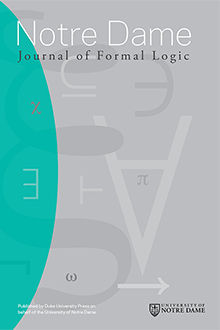Abstract
Goodstein’s theorem states that certain sequences based on exponential notation for the natural numbers are always finite. The result is independent of Peano arithmetic and is a prototypical example of a proof of termination by transfinite induction. A variant based instead on the Ackermann function has more recently been proposed by Arai, Fernández-Duque, Wainer, and Weiermann, and instead is independent of the more powerful theory . However, this result is contingent on rather elaborate normal forms for natural numbers based on a “sandwiching” procedure. This leaves open both the question of whether the sandwiching procedure can be eliminated while retaining the full strength of the Ackermannian Goodstein principle, and whether other normal forms can lead to nontermination.
In this article we settle these questions by showing that any Goodstein process based on the Ackermann function is terminating, and indeed the sandwiching procedure gives rise to Goodstein principles of maximal length. We thus obtain an equivalent principle which does not involve normal forms at all and immediately implies all Ackermannian Goodstein principles that have been considered. Our techniques provide a new approach to termination proofs, where terms in a sequence do not necessarily decrease in complexity, but instead are majorized by some “master” process, already known to be terminating.
Citation
David Fernández-Duque. Andreas Weiermann. "A Walk with Goodstein and Ackermann." Notre Dame J. Formal Logic 65 (2) 181 - 201, May 2024. https://doi.org/10.1215/00294527-2024-0016
Information





